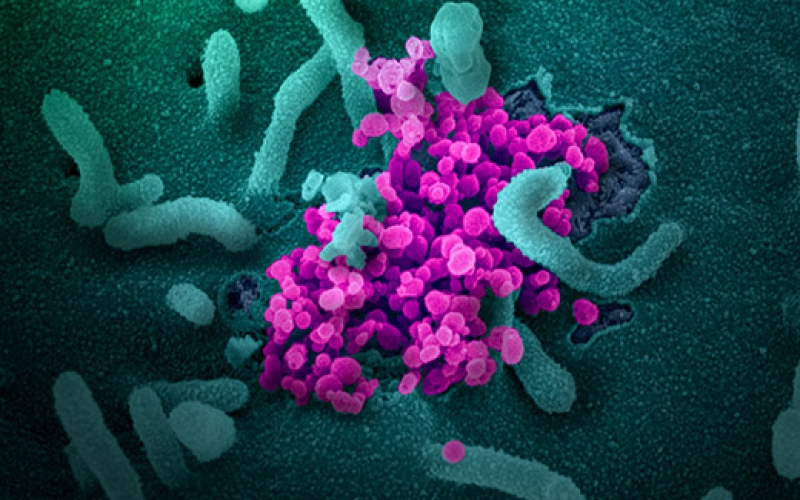Emory begins advanced stage clinical trial for another COVID-19 vaccine

ATLANTA -- Emory University will enroll adult volunteers in a large-scale clinical trial designed to evaluate whether a single dose of an investigational vaccine can prevent symptomatic COVID-19.
The vaccine candidate, developed by the Janssen Pharmaceutical Companies of Johnson & Johnson, moved to Phase 3 trials after encouraging results from an earlier clinical study.
This is the first late stage trial to assess if a single dose vaccine can protect people against COVID-19.
“We are thrilled with the opportunity to conduct this important Phase 3 clinical trial of Janssen’s adenovirus-vectored COVID-19 vaccine,” says Evan Anderson, MD, principal investigator for the trial at Emory and professor of medicine and pediatrics at Emory University School of Medicine and Children’s Healthcare of Atlanta.
“COVID-19 has caused many hospitalizations and deaths in the state of Georgia. This novel vaccine holds great potential for addressing the pandemic if it proves to be safe and effective.”
The Janssen vaccine candidate uses a weakened human adenovirus to express the SARS-CoV-2 spike protein in cells. Adenoviruses are viruses that cause the common cold. However, the adenovirus vector used in the Janssen vaccine candidate has been modified so that it does not replicate in humans and cause disease.
The primary purpose of the Phase 3 trial is to determine whether the investigational vaccine can prevent moderate to severe COVID-19 after a single dose. The trial will use specialized assays to distinguish between immunity as a result of natural infection and vaccine-induced immunity.
Janssen, the National Institute of Allergy and Infectious Diseases (NIAID) and the Biomedical Advanced Research and Development Authority (BARDA) are funding the trial.
The Janssen vaccine is the fourth such candidate in final stage testing in the United States. The Janssen vaccine trial will enroll up to 60,000 volunteers at more than 200 clinical research sites in the United States and internationally. A portion of the sites are part of the NIAID-supported COVID-19 Prevention Network (CoVPN), a collaborative of four existing clinical research networks, including the Infectious Diseases Clinical Research Consortium based at Emory.
Volunteers must provide informed consent to participate in the trial. After providing a baseline nasopharyngeal and blood sample, participants will be randomly assigned to receive a dose of the potential vaccine or a saline placebo. The trial is blinded, meaning neither investigators nor participants will know who is receiving the investigational vaccine.
Participants will be followed closely for safety and will be asked to provide additional blood samples at specified time points after the injection and over two years. Scientists will analyze the blood samples to detect and quantify immune responses to COVID-19.
Adults who are interested in joining this study can visit the COVID-19 Prevention Network.
Emory is also completing enrollment in a Phase 3 trial for another investigational vaccine for the new coronavirus.
Apart from the vaccine trials, researchers at Emory are working on a host of research studies to diagnose, treat, and prevent the new coronavirus including investigations into monoclonal antibody therapies.
About the COVID-19 Prevention Network
The COVID-19 Prevention Network (CoVPN) was formed by the National Institute of Allergy and Infectious Diseases (NIAID) at the U.S. National Institutes of Health to respond to the global pandemic. Through the CoVPN, NIAID is leveraging the infectious disease expertise of its existing research networks and global partners to address the pressing need for vaccines and antibodies against SARS-CoV-2. CoVPN will work to develop and conduct studies to ensure rapid and thorough evaluation of vaccines and antibodies for the prevention of COVID-19. The CoVPN is headquartered at the Fred Hutchinson Cancer Research Center. For more information, visit the COVID-19 Prevention Network website.
About the Infectious Diseases Clinical Research Consortium (IDCRC)
The IDCRC, consisting of the Vaccine and Treatment Evaluation Units (VTEUs) and the IDCRC Leadership Group, was formed in 2019 to support the planning and implementation of infectious diseases clinical research that efficiently addresses the scientific priorities of NIAID. The consortium includes infectious diseases leaders and clinical researchers from Emory University, University of Maryland School of Medicine, Baylor College of Medicine, Cincinnati Children’s Medical Center and University of Cincinnati, FHI360, Fred Hutchinson Cancer Research Center, Johns Hopkins University, Kaiser Permanente Washington Health Research Institute, New York University, Saint Louis University, Vanderbilt University Medical Center, University of Alabama at Birmingham, University of Rochester, University of Washington, and NIAID.